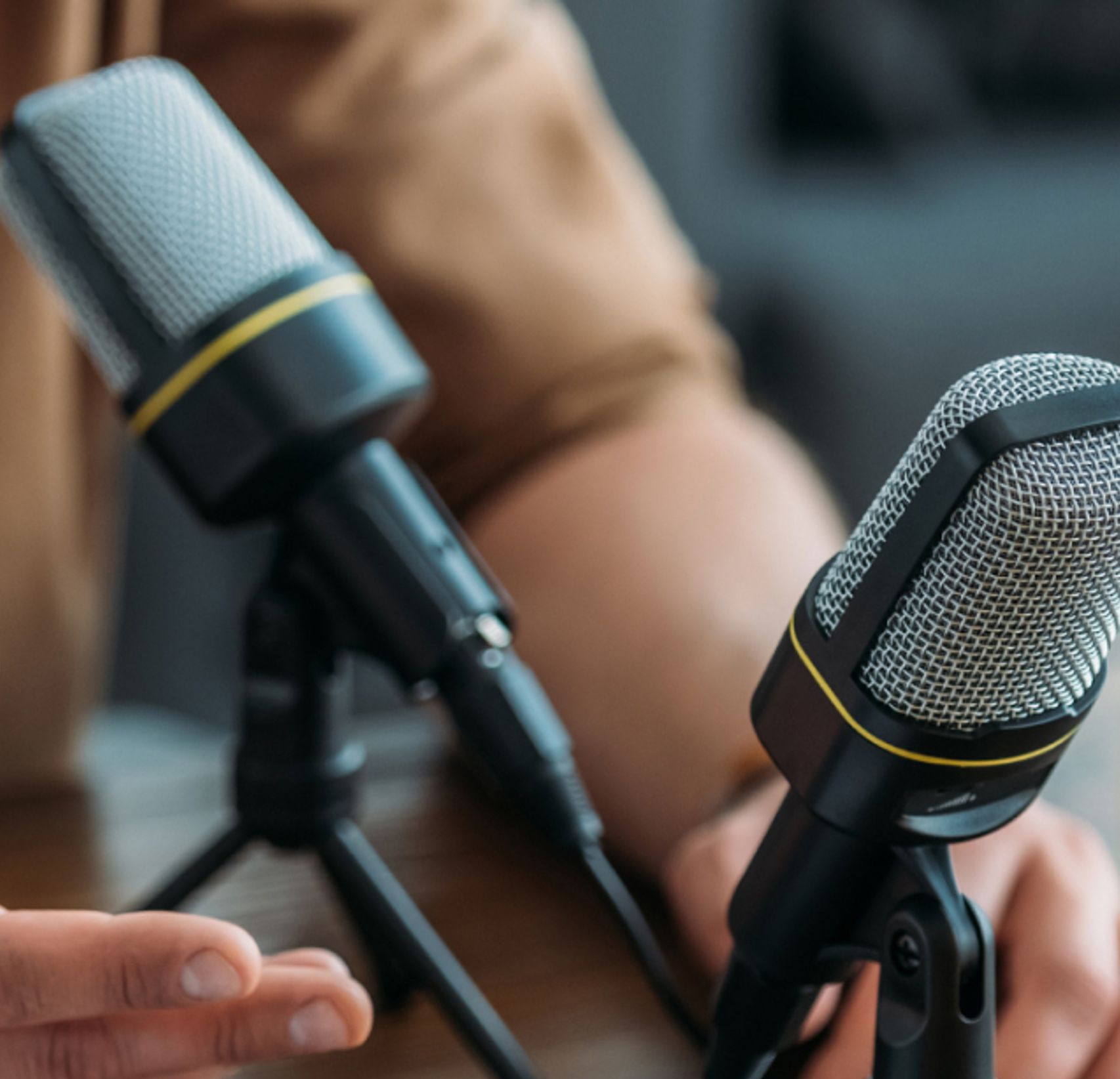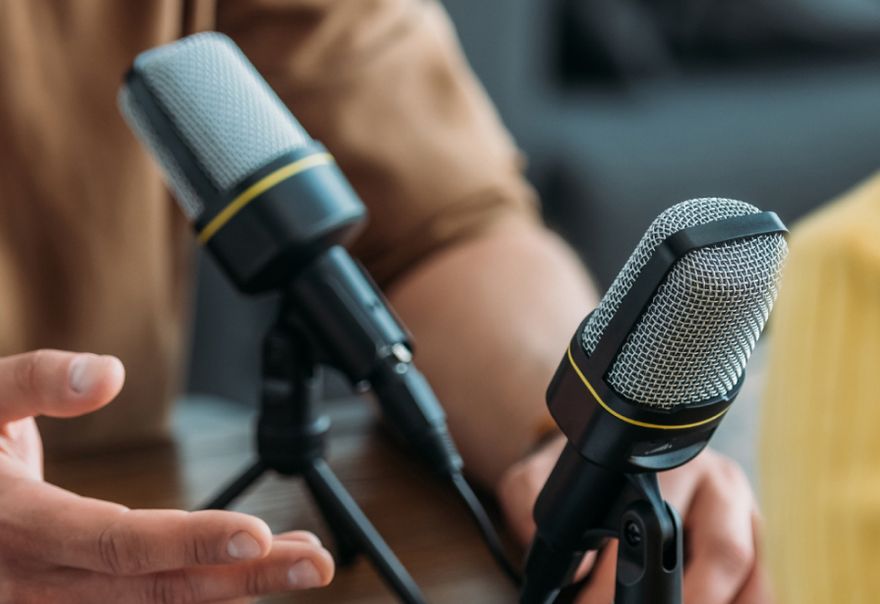Podcasting launched in 2004, but it wasn't until 2019 that their popularity really seemed to skyrocket. According to the latest stats, there are currently around 800,000 active podcasts and over 54 million episodes available worldwide. For many, podcasts have even become their preferred way of consuming content with research pointing to 74% of Americans using podcasts to learn something new.
With their incredibly low-barrier to entry, it's easy to see why podcasting has become so popular. In fact, all you really need to get started is a high-quality microphone and a decent pair of headphones. However, with that said, just because you can create a podcast that doesn't necessarily mean that you should. A podcast can be a great way to level-up your content marketing strategy, but there's also a tonne of work that goes into producing one (especially if you're new to this format). So, if you've been tossing around the idea of starting a podcast at your school, ask yourself the following three questions first so there aren't any surprises later.
Does your team have time to produce a podcast?
We know that some podcasts flow so easily that it might seem as though they've been casually thrown together, without a whole lot of planning – but don't be fooled! The steps to creating a podcast episode are actually quite involved. You'll need to map out content, search for talent, write a script, record audio, edit, upload, and finally, promote!
Of course, the resources available to you will help to determine how frequently you can release new content. You've probably noticed that most of your favourite podcasts release new episodes on a weekly or fortnightly basis. To keep content timely and relevant for audiences, this is the ideal schedule to commit to. This is tricky if you're a content marketing team of one as it could take up to two weeks to produce just one episode.
So to recap! Before you start researching which microphone you should buy, be honest about the resources you have available and determine whether you actually have the time to dedicate to producing a great podcast.
Do you have an audience for it?
It's easy to get swept up in the excitement and whirlwind of possible content ideas, that you forget to conduct a little research first. Before you invest a significant amount of your (or your team's) time, take a temperature test with your school community to see if a podcast is something they would actually be interested in listening to.
An easy way to do this is by sending a quick survey to your community. There are a number of free platforms online, like SurveyMonkey for example, that are great for gathering data. While you're at it, why not dig a little deeper to find out what the ‘ideal podcast' would look like for your audience? Think about including some of the following questions in your survey:
- What is the ideal podcast length?
- What areas of your school would you like to learn more about?
- What content most interests you (student and staff interviews, community stories, reviews, etc.)?
Before heading down the podcast route, do your research to see if there is a viable audience who is interested in listening to your podcast. If not, there might be other content marketing initiatives that are better suited to engage your community, like blogging or video marketing.
Have you found your niche?
One thing all great podcasts have in common is that they nail their niche. This means that they hone-in on a key topic area, setting them apart from other creators. When thinking about a podcast for your school, take the time to brainstorm what your niche might be. Remember, a podcast should be a way to share new information with your audience – what it shouldn't be is your school newsletter, presented in a new format. Your podcast should provide additional content and value that can't be found anywhere else.
Here are just a few example of the niche topics you might like to cover in your school podcast – but feel free to get creative and come up with some out-of-the-box ideas!
- Teacher ‘get to know me' Q&A
- Where are they now? Invite alumni on your podcast to talk about what they've gone on to achieve.
- Student stories to showcase recent achievements and awards
Key takeaway: identify a niche for your podcast. Not only will this help to better engage your audience, but it'll also guide episode planning as you'll know exactly what kind of content you need to create.
Where to from here?
If you've answered these three questions honestly and have decided that you're still ready to make a podcast, then let's get started. As mentioned you'll need to invest in a high-quality podcast microphone, a pair of headphones, editing software (like Adobe Audition), and a hosting platform. There are several podcast platforms available that offer free solutions – feel free to take a look at this handy comparative list.
On the other hand, if you've landed on the conclusion that perhaps, you don't have the time and resources to pull off a podcast right now, that's okay too! It's better to know what you're in for now, rather than finding out a few episodes in that you can't keep up with the workload. If you're looking for another way to boost your school's content marketing, take a look at some of the resources below.





